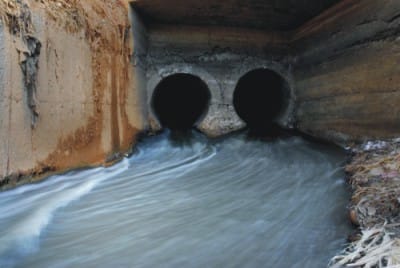Industrial pollution

Photo: Munem Wasif / Driknews
It is a matter of utmost concern that many industrial units in the country keep releasing toxic gas and chemicals into the environment, to the peril of human health, crops and aquatic resources. What is supremely ironical is, while the owners of these industrial units as responsible citizens contribute significantly to the growth of the economy and generation of employment opportunities, they prefer to remain indifferent to the vital issue of environment pollution and the resultant damage to eco-system.
It is mainly industrial pollution which left the rivers of Dhaka city biologically dead, as 60 percent of the total effluents dumped in the rivers are industrial wastes while the rest are household wastes. Pollution of the city rivers has reached such a level that the groundwater system, where aquifers are recharged from riverbeds, is also being contaminated. Although the Bangladesh Environment Conservation Act (ECA) clearly prohibits pollution of rivers, and makes it mandatory to set up Effluent Treatment Plants (ETP) for certain categories of industries, but no success has been seen yet. According to the Department of Environment (DoE) statistics, there are around 7,000 industries in and around the capital, around 200 of which have ETPs, but many of them do not use the plants in order to maximize profit by cutting the cost of running those.
According to the Environment Conservation Rule 1997 under ECA, every industry of certain categories must have in-house ETPs, otherwise they would not get environmental clearance from DoE, which is mandatory for getting power and gas supply.
The pollution that has set in the rivers Buriganga, Turag, Balu and Shitalakkhya has made it almost impossible to treat their water. The overall situation suggests it could not be any graver. Repeated notices of the DoE protests from environmentalists, warnings from environment experts, and the High Court's directives for the government to stop pollution of rivers -- nothing could refrain industrialists from their vile practice of dumping effluents in the rivers.
While industrialization is necessary to boost our economy and create employment opportunity, it is equally essential that factory owners obey the laws and install protective measures of international standard.
It is time for the relevant ministries and departments to enforce anti-pollution laws, especially in the industrial field. It is at the time of issuing licenses for industries that the applicants should commit themselves to stringent environmental criteria before they are authorized to set up units. Then, there should be oversight bodies to monitor their performance from time to time.

 For all latest news, follow The Daily Star's Google News channel.
For all latest news, follow The Daily Star's Google News channel. 



Comments